Most aren't particularly worried about Ebola now, and people also tend to be happy with the government and Obama's handling of Ebola
The two nurses who contracted Ebola in the United States, the only two people who were exposed here and became sick, have recovered. So has the doctor who contracted Ebola in Africa but became symptomatic when he returned to the U.S. But many Americans still worry about their own personal safety, and a majority remain concerned about a possible epidemic. The biggest change in public opinion seen in the latest Economist/YouGov Poll is a new satisfaction with the government’s response.
The lack of any new cases manifesting themselves in the United States has lessened the demand for additional government action. Only a third in this week’s poll say the government is not doing enough to contain the virus, the lowest percentage since August, the first time this poll asked about Ebola, and a drop of 15 points from the end of October. In mid-October, more than half the public thought the government wasn’t doing enough.
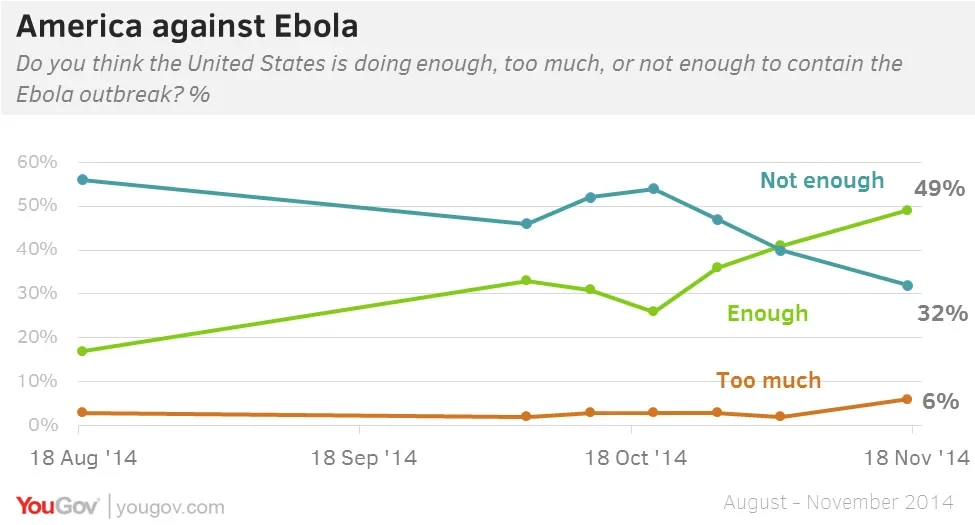
Republicans have exhibited the greatest change. At the end of October, 67% of Republicans said the government wasn’t doing enough to contain the Ebola outbreak. That percentage has dropped 28 points. Just 39% of Republicans now say the government isn’t doing enough.
There is also less interest in increasing government spending to deal with the outbreak. Just one in four today would increase government spending on Ebola research, down from 36% at the end of October.
But perhaps the most striking example of public satisfaction with the government’s performance is the change in the way Americans evaluate the President’s performance. For the first time in two months, more Americans approve of the way Barack Obama is handling this situation than disapprove.
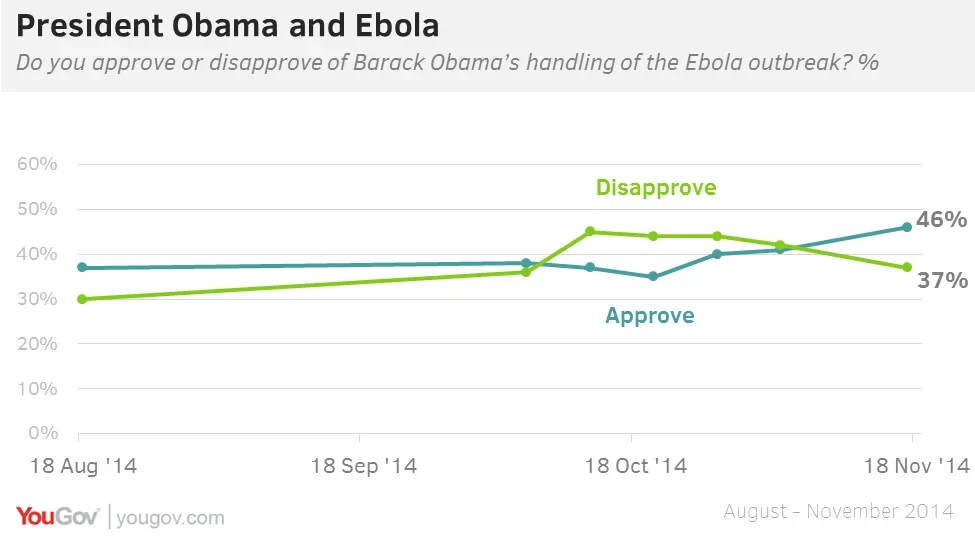
In fact, those who approve outnumber those who don’t by nine points.
While there is more satisfaction with the government’s management of the situation, there has been little change in overall concern. This week 31% report being at least somewhat worried that they could contract Ebola, a drop of only seven points from late October. More than half remain concerned that there could still be an epidemic here in the United States. The percentage who are at least somewhat concerned this week is 53%. It was 56%, about the same, three weeks ago.
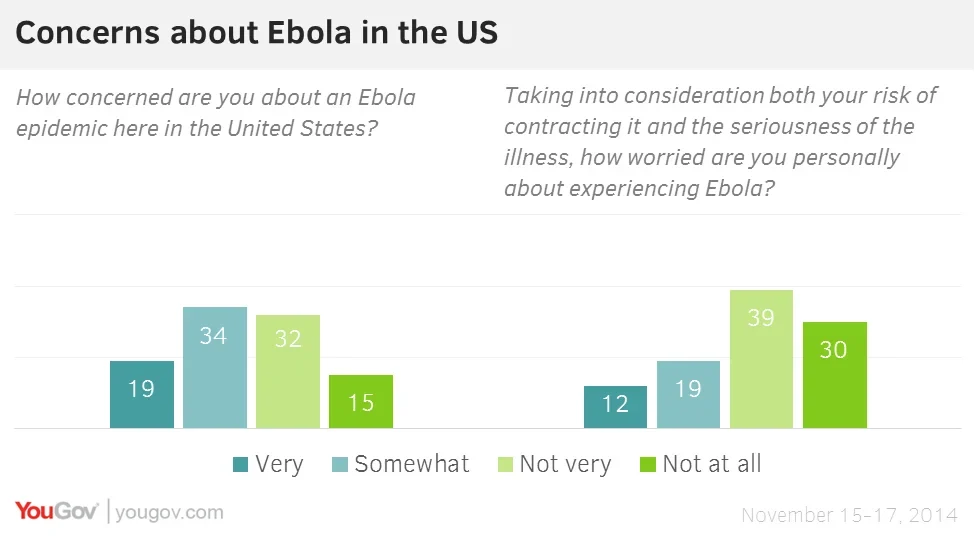
For the last three months, large majorities have expressed support for quarantining those who may possibly become affected, and favored mandatory quarantine of medical personnel who treated Ebola patients and of anyone entering the United States from the most affected countries. In fact, majorities opposed allowing anyone traveling from western Africa to enter the United States. When asked in this poll whether most Americans overreacted to the risks of contracting the virus, just a third say they did. The rest say the public treated the risks appropriately or weren’t taking the virus seriously enough.
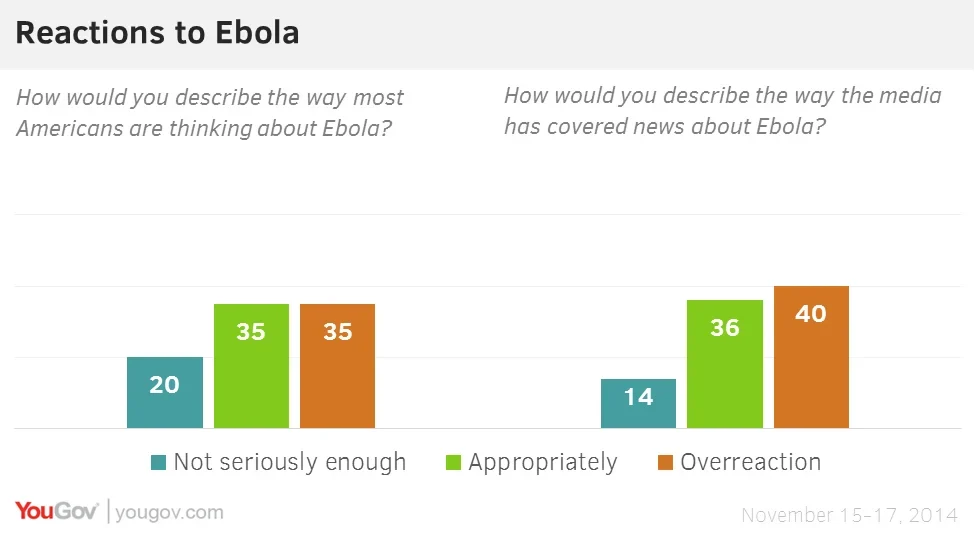
More say the media overreacted than think the public did.
There is a political gap among the one in five who believe that most Americans are not taking the risks seriously enough. Nearly a third of Republicans believe this, compared with only 13% of Democrats. That difference also exists among those who think the media did not take the risks seriously enough. Just 8% of Democrats say this, while 23% of Republicans do.
There has been almost no change in how the public evaluates media coverage. About as many now as in previous polls believe the media has made the Ebola outbreak seem worse than it actually is.
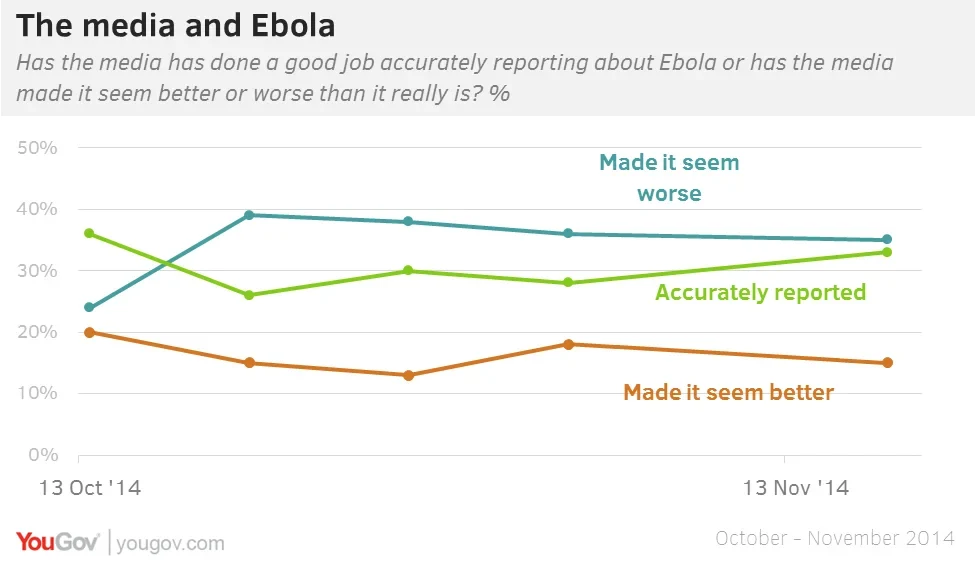
But the news coverage may not have mattered in the midterm election, according to the public. Only 17% overall say it did, and that belief is just about as common among Democrats as Republicans.
Economist/YouGov poll archives can be found here.








